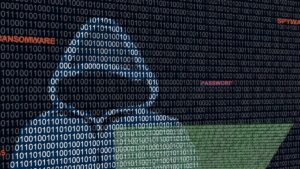Australians still want $$$ from their super, with 480,000 wiping out potential savings

Pic: Rommel Gonzalez / EyeEm / EyeEm via Getty Images
Demand for toilet paper may have dropped since March but demand for payouts from superannuation hasn’t.
Since March, the government has allowed persons financially affected by COVID-19 to withdraw up to $10,000 in FY2020 from their superannuation.
The government expected 1.6 million to take up the offer, a figure exceeded in late May and the withdrawals continued throughout June. As of July 2, 2.1 million people have taken money out of their superannuation — over $15bn in total to be exact.
This means more than 500,000 Aussies have withdrawn some of their super in the last month even despite lockdown restrictions easing and suggestions an economic recovery is already underway.
Yet, even the most optimistic economists warn it will take several months at least for the economy to return to its pre-COVID-19 levels.
Thousands wiping out their super
Analysis from Industry Super Australia (ISA) estimates about 480,000 people could have completely wiped out their super. Furthermore, over 80 per cent of people who have raided their entire accounts are under 35.
ISA chief executive Bernie Dean warned the consequences would come in the form of higher taxes to subsidise aged pensions.
He estimates 25-year-olds taking out $10,000 could have $49,000 less in retirement. A 35-year-old could be up to $34,000 worse off while a 45-year-old could have $23,000 less to support them in retirement.
“Those early contributions are like yeast, without them you’re left with a much flatter nest egg,” Dean said.
“To have hundreds of thousands wiping their savings out midway through their life is a tragedy waiting to happen and it will affect everyone. Every Australian deserves a good life in retirement, not just scraping by on the pension.”
To access superannuation, applicants had to prove they had suffered financial hardship through unemployment or reduced hours.
But the Australian Tax Office (ATO) has raised concerns that people are lying about needing the money and has warned penalties will be handed out if that is found to be the case.
One consequence would be having the $10,000 sum added to the offender’s taxable income — which wouldn’t be the case if someone meets the eligibility criteria.
Further penalties may also apply.
Stockhead is seeking comment from Dean about whether or not the government could have been more proactive about warning withdrawees of the consequences of taking out their super early.
Related Topics
UNLOCK INSIGHTS
Discover the untold stories of emerging ASX stocks.
Daily news and expert analysis, it's free to subscribe.
By proceeding, you confirm you understand that we handle personal information in accordance with our Privacy Policy.








